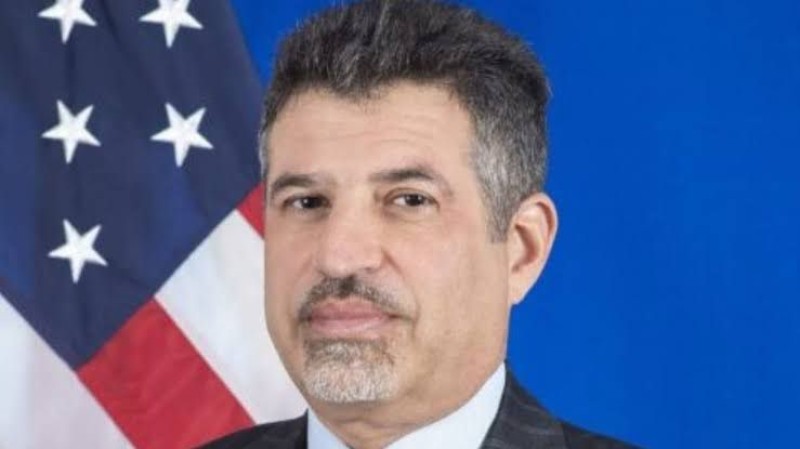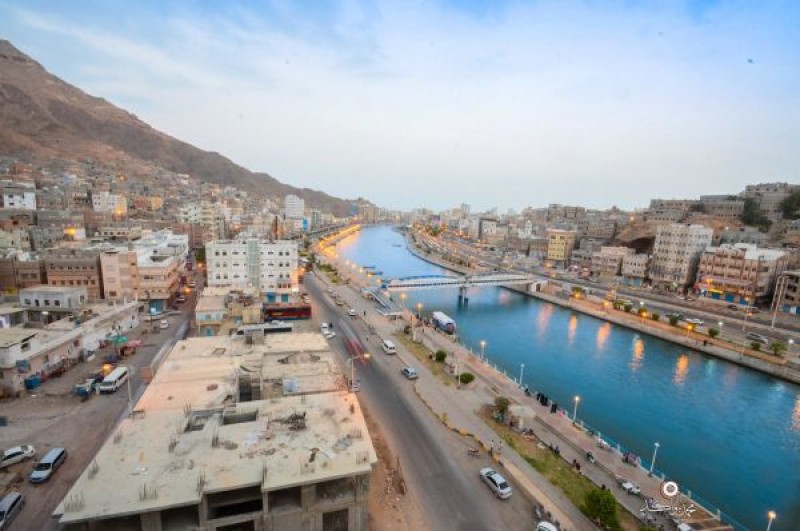Yemen: ceasefire broken as fresh fighting breaks out in Hodeidah


Renewed clashes broke out between Houthi rebel fighters and Saudi-backed pro-government forces in the Yemeni port city of Hodeidah on Wednesday, breaching a ceasefire and potentially threatening a withdrawal agreement intended to pave the way for wider peace talks.
The fighting prompted the UN’s special envoy to Yemen, Martin Griffiths, to warn that peace could yet be a way off, despite earlier signs the pullout by Houthi forces was going to plan. Their withdrawal from Hodeidah and two other Red Sea ports, which began on Saturday, was the most significant advance yet in efforts to end the four-year-old war.
Speaking to the UN security council in New York, Griffiths warned the alarming intensification could wipe out the progress made in Hodeidah, as other UN officials warned of a cholera outbreak on the brink of the rainy season, the risk of massive oil spills into the Red Sea and an 80% shortfall in promised aid.
Griffiths hailed the initial redeployment of Houthi forces from Hodeidah port, but told the security council: “War has a habit of trumping peace – its impact more corrosive than the positive impact of ending wars. We must not let war take peace off the table.”
Griffiths was referring to the rise of violence in Yemen, as well as signs of major breaches of the Hodeidah ceasefire. The UN said on Tuesday the ports had been handed over to Yemen’s coast guard and the pullout was on target. However, both sides reported renewed clashes on Wednesday, a day after the Iran-aligned Houthi movement claimed a drone attack that Saudi Arabia said had hit two of its oil-pumping stations. Houthi-run media said pro-government forces had hit various parts of Hodeidah, including the airport, with heavy and medium weapons.
The UK ambassador to the UN, Karen Pierce, described the news of the Houthi withdrawals as a significant step, and said the news from Yemen was both frightening and uplifting.
Griffiths confirmed an initial redeployment of forces from the three ports took place under UN monitoring between May 11 and 14, with the ports now under the control of the coast guard. He said his mission had confirmed the Houthis “were fully compliant throughout the withdrawal and had been fully cooperative, and had now left these three ports”.
Griffiths added the UN was ready to play a leading role in the Red Sea ports, including management and inspections of cargo. It will also help with improving efficiency, including enhanced lighting, and demining of outer port and public works.
The UN-backed Yemen government is deeply sceptical about the redeployment, and the fighting that has followed the withdrawal, including the use of artillery, left little room for optimism. It fears the coast guard is simply Houthi forces in different uniforms and sees the withdrawal as a masquerade staged by the rebels.
Griffiths insisted the redeployment marked a new beginning and the first concrete step of implementing an agreement reached in talks in Sweden in December. But he stressed momentum had to be maintained by further redeployments of forces on both sides.
Mark Lowcock, the UN’s humanitarian affairs co-ordinator, also gave a sobering account of the state of the country, saying famine still loomed, 10 million people remained reliant on emergency food assistance and 300,000 had been struck by cholera.
In the first quarter of the year there had been 900 civilian casualties, he said, adding civilians were now more likely to die in their homes than anywhere else. Food assistance was taking 60 hours to travel from the capital, Sana’a, to the southern port of Aden due to proliferation of military checkpoints.
He also warned an oil tanker off the coast remained at risk of rupturing and exploding, with UN technicians so far denied access to inspect the necessary repairs. The tanker is carrying 1.1m barrels of oil and if the ship does explode, the oil spillage will be four times as large as as the Exxon Valdez disaster 30 years ago in Alaska.
Hodeidah, which is home to about 600,000 people, is Yemen’s second largest city by population. Its vital port – through which 70% of Yemen’s food, fuel and aid flows – has been under Houthi control since 2015 and has become the country’s major aid pipeline due to the Saudi-led coalition blockade of Yemen’s borders and airspace.
The city has twice been threatened with a full-scale offensive by coalition forces fighting to restore Yemen’s government, although aid agencies have warned that any damage to the city’s port or delays in aid delivery would tip the country into a full-blown famine.
Currently, three-quarters of Yemen’s 28-million population are dependent on aid to survive, and about 8 million people do not have enough to eat.
“The situation here in Hodeidah has been very grim, very unstable,” said a resident, who asked not to be named for fear of Houthi reprisals.
AFP.

Riyadh — U.S. Ambassador to Yemen, Steven Fagin, on Monday underscored Washington’s commitment to the unity of the Presidential Leaders…

Abyan — The Southern Transitional Council (STC) in Yemen announced on Monday the launch of wide-scale military operations in Abyan province,…

Aden – Yemen is witnessing heightened political activity aimed at defusing tensions in the eastern provinces, where competing forces have vie…